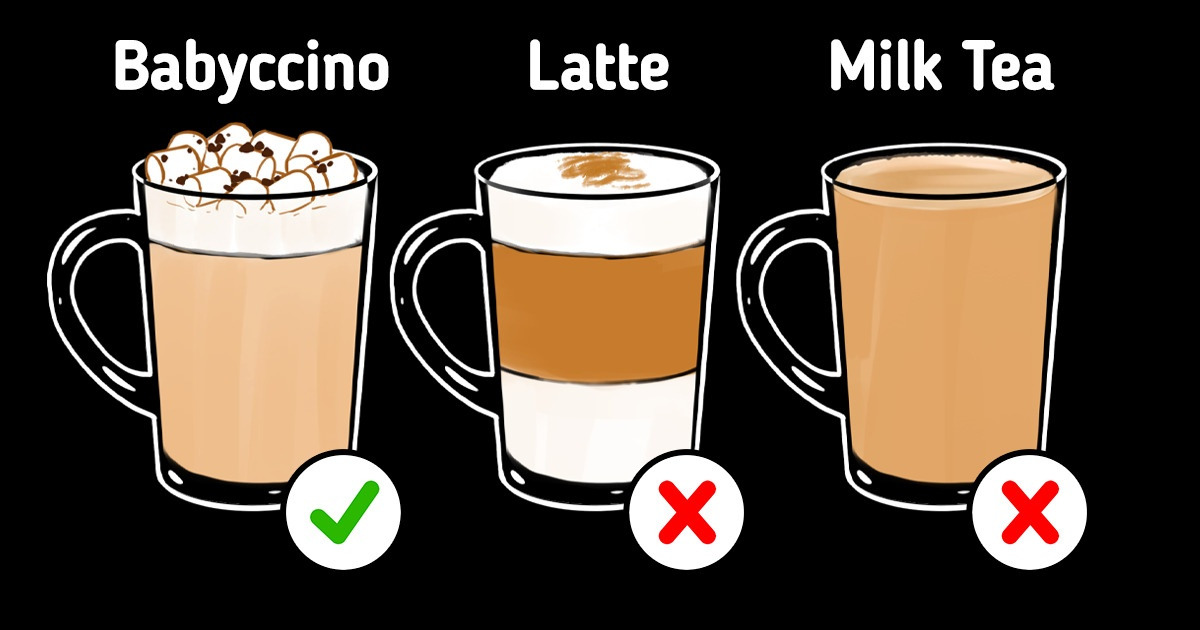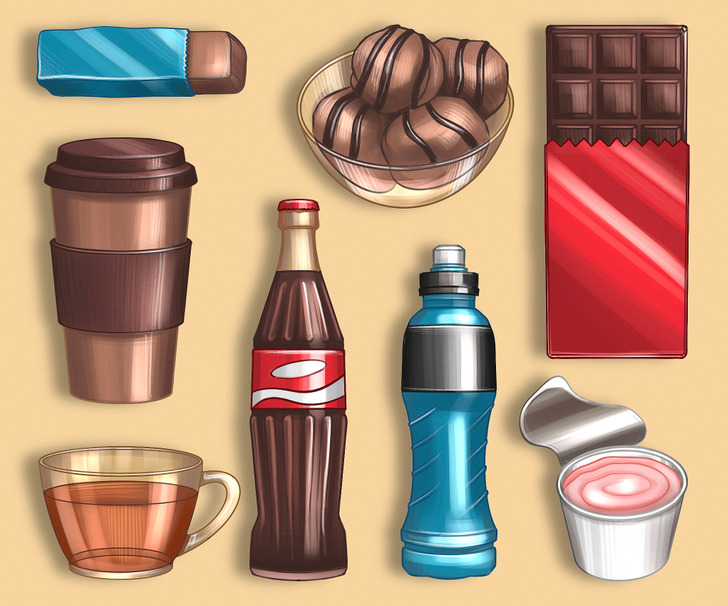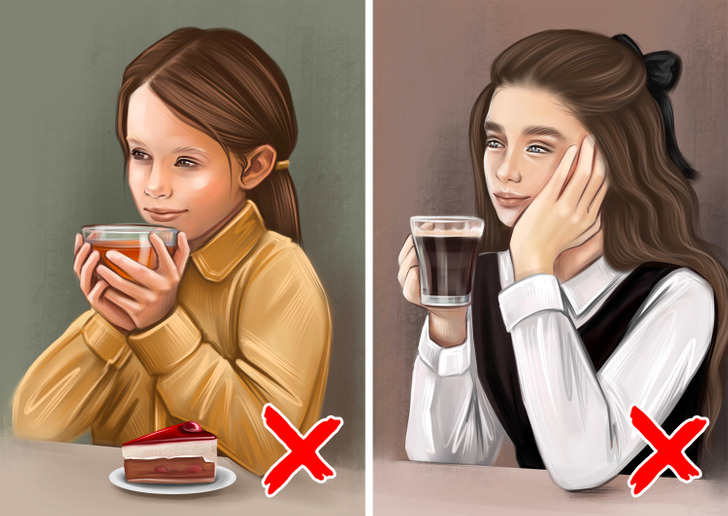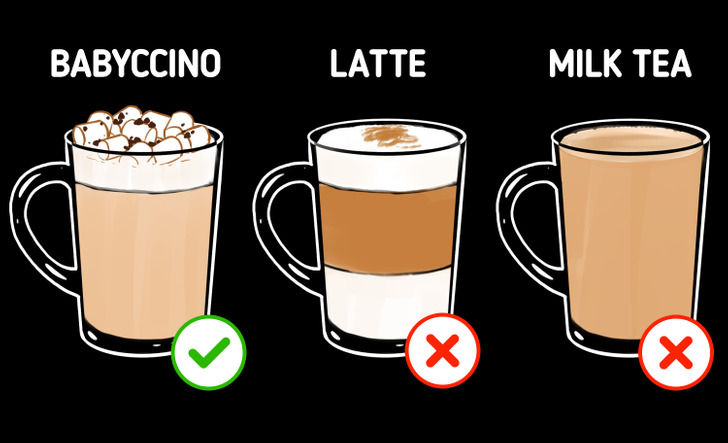The Answer to Whether Children Can Drink Coffee

Some parents don’t let their children drink coffee until they turn at least 14 years old. At the same time, these parents don’t mind that their children drink black or green tea. On the other hand, there are parents who believe that any drink with low caffeine content can be consumed by children sometimes.
5-Minute Crafts would like to tell you about what doctors and scientists recommend regarding the consumption of drinks containing caffeine by children.
What is caffeine?
Caffeine is found in coffee, tea leaves, cola leaves, guarana leaves, and some other plants. It’s a psychoactive substance and an alkaloid. In small doses, these organic compounds have various effects on the human body, so they are used in medicine and pharmaceuticals. For example, some alkaloids are used as anesthesia during surgery. But at the same time, because of their properties, alkaloids can be hazardous to our health: if an anesthetist chooses the wrong medicine or the wrong dose, a patient can die.
Caffeine is a central nervous system stimulant. As a result, heart activity accelerates, blood pressure rises, and dopamine is released, which improves our mood for a short time. Regular and long-term use of caffeine can cause mild physical dependence, and large doses of caffeine can harm human health and can even be lethal.
What drinks and foods contain caffeine?

The highest content of caffeine is not only found in coffee, but also in energy drinks, some sweet carbonated drinks, green and black tea, dark chocolate, and chocolate-coated desserts. It’s also found in all products containing chocolate, decaffeinated coffee (though in very small amounts), yogurt, ice cream, breakfast cereals, protein bars, puddings, and sports drinks. You should control the amount of these foods in your diet if you want to stick to the recommended daily intake of caffeine, which should not exceed 400 milligrams a day for an adult.
Can children drink coffee?

At the moment, scientists don’t yet understand the effects of excessive caffeine intake on children, and what side effects it can cause. Some doctors suggest that caffeine’s potential effects include a rapid heartbeat, high blood pressure, and anxiety, so they recommend completely eliminating it from the diet of a child or teenager.

Instead of drinks containing caffeine (including black or green tea), it’s better to give preference to water and juice (though in moderation). And if a child needs extra energy, they can get it from exercising. In general, try to instill healthy habits in your children.
Keep in mind that your child will likely still get small amounts of caffeine from other foods, like chocolate, ice cream, yogurt, and chocolate-coated desserts. Therefore, it’s worth limiting the consumption of these foods as well.
On the other hand, instead of drinking a decaf latte or milk tea, children can choose a babyccino that looks like a coffee drink but is just warm milk with cinnamon or cocoa powder. It is sugar-free but can be decorated with some marshmallows.